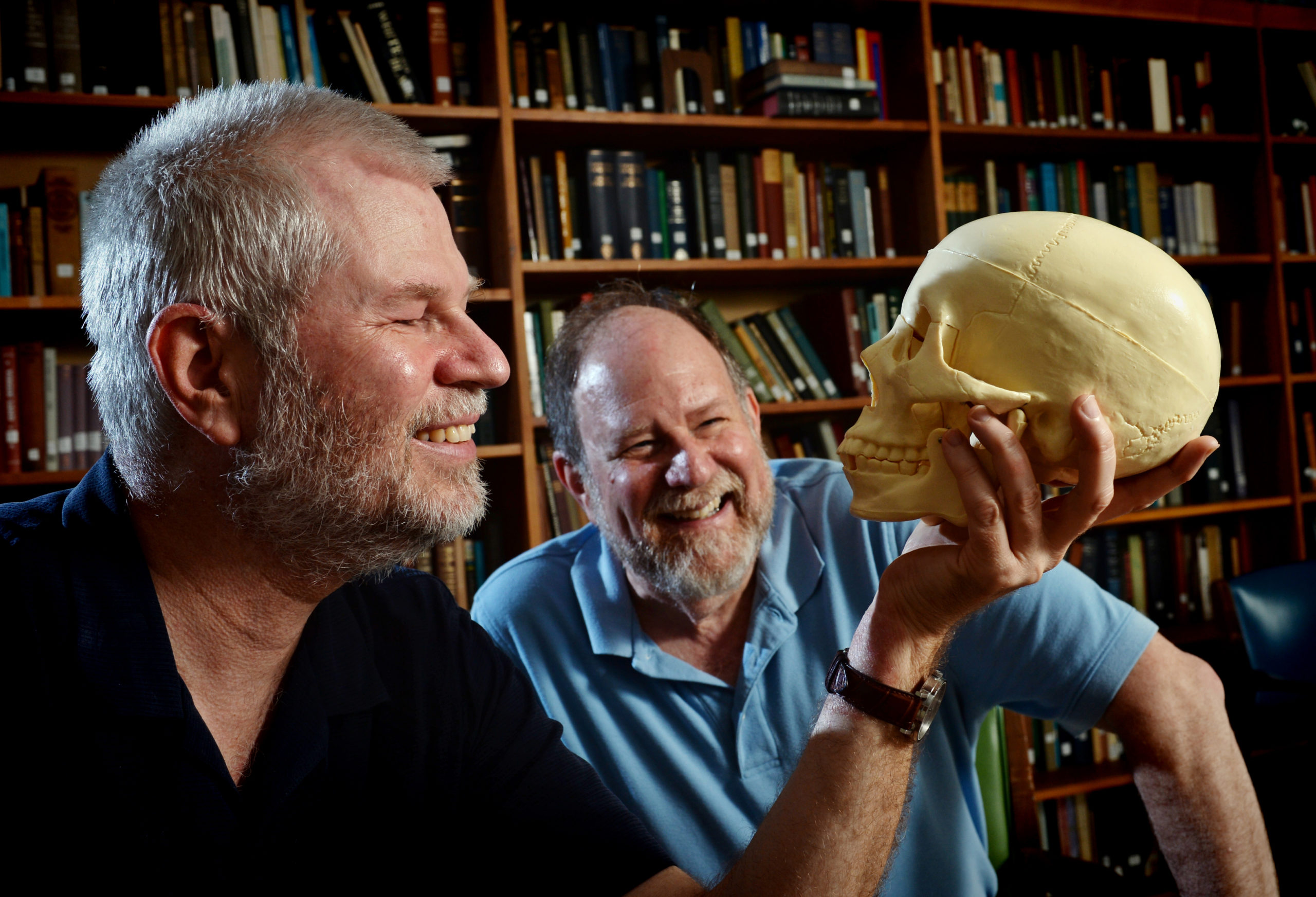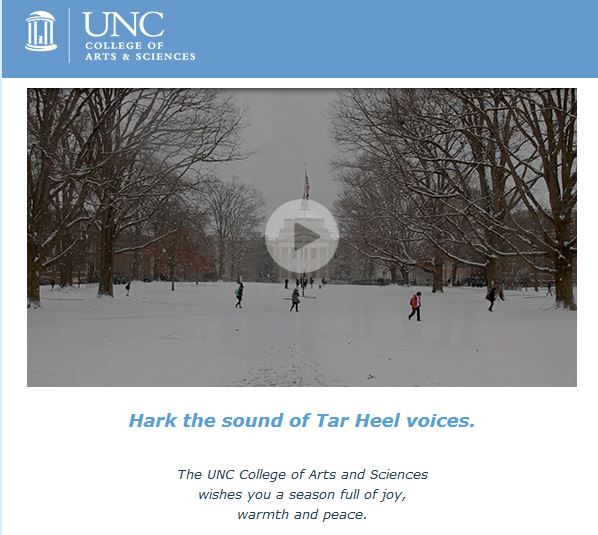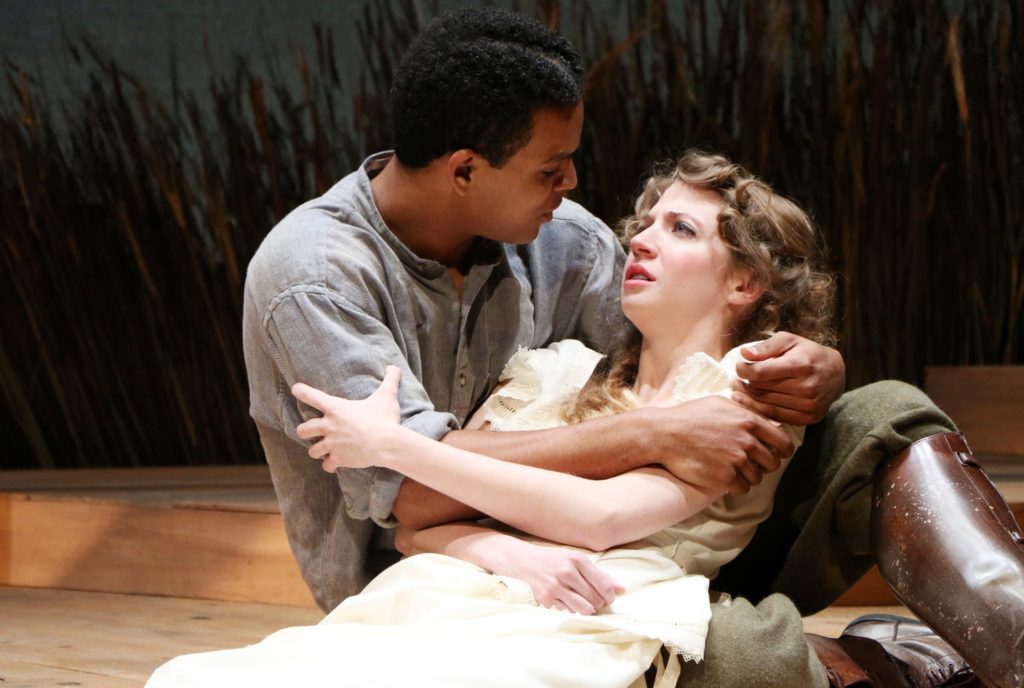
In the comedy “The Complete Works of Shakespeare (abridged),” members of the Reduced Shakespeare Company boast that they present all 37 plays in 97 minutes. The rapid-fire dialogue, costume changes and slapstick antics are hilarious.
This is NOT the way Shakespeare is taught in the super-short summer and Maymester sessions at Carolina, however.
So how can a professor squeeze the works of the Bard of Avon into the 4½ weeks of summer session or the (gasp) 12 days of Maymester?
“I do the opposite of ‘Shakespeare (abridged),’ “ said David Baker, who teaches eight plays in the regular term and six or seven in the summer. This year, they were “Othello,” “Merchant of Venice,” “A Midsummer Night’s Dream,” “Henry V,” “Hamlet,” “Much Ado About Nothing” and “Romeo and Juliet.”
Details and nuances
“Given the compressed schedule, you could do a new play every two days or every three days,” Baker said. But by doing fewer plays, “you get the details and nuances that come from slow reading. Each of them is so rich.”
Ritchie Kendall, who taught Shakespeare in Maymester this year, uses a similar approach. “The number of contact hours is the same as the regular term,” he said. “In Maymester, we do fewer plays, but we spend an enormous amount of time on those plays. The concentrated force can be very powerful.”
In his regular class, Kendall teaches 10 plays. In Maymester this year, he taught five: “A Midsummer Night’s Dream,” Henry IV, Part 1,” “Hamlet,” “King Lear” and “Much Ado About Nothing.”
But it’s not just about how many plays they teach. It’s also about how they teach them. Students stuck in classrooms for 1½ hours in summer session or 3¼ hours in Maymester five days a week demand a different classroom style. “It’s not a reproduction of the regular term class in small scale. It’s a different kind of teaching,” Kendall said.
For instance, the professor may show film clips of the same scene from “Much Ado About Nothing” and compare how the Globe Theatre (traditional stage setting), actor/director Kenneth Branagh (on location in sunny Tuscany) and director Joss Whedon (filmed in his own LA home) interpreted Shakespeare’s text.
Gravedigger in ‘Hamlet’ had the spade
The smaller classes also allow more debate and discussion and a chance for groups of students to act out a scene for the rest of the class. In Maymester, Kendall took his class to the arboretum to perform. “The student playing the gravedigger in ‘Hamlet’ had the spade and I was afraid someone would see it and ask us to leave,” Kendall said.
So what kinds of students spend their summer sweating over Shakespeare? Rarely English majors. Often they are undergraduates who were on a diploma track until discovering that they were a General Education or Western Civilization credit shy. Shakespeare, aka ENGL 225, counts as both, and it’s almost always offered in the summer.
Take Zakeria Haidary, a business administration major who finished his junior year in May. Even though he’d come to Carolina with several hours of AP credits, he was missing a General Education requirement needed for graduation.
“So it was not the purest of motives,” Haidary said via Skype from Doha, Qatar. Oh yeah, that was another reason to squeeze Shakespeare into Maymester. He had already snagged a great summer internship abroad with Hill+Knowlton Strategies.
Kendall, his professor, taught in a way that was “in-depth, but not overwhelming,” Haidary said. He was in one of the groups that performed a scene from “Midsummer Night’s Dream” in the arboretum in May.
“I was one of the fairy queen’s henchmen,” he said, in the scene in which an enchanted Queen Titania falls in love with Bottom, who has the head of a donkey. He would have liked to play the donkey, Haidary said, but “they wouldn’t let me. The kid who had the horse mask got to play the donkey.”
Haidary highly recommends Maymester to other students. “If you still want to have a full summer, it’s a great way to get the benefit of summer school in a short amount of time,” he said.
And if you will be studying a “Midsummer Night’s Dream,” don’t forget to bring your horse mask.
By Susan Hudson, UNC Communication and Public Affairs




